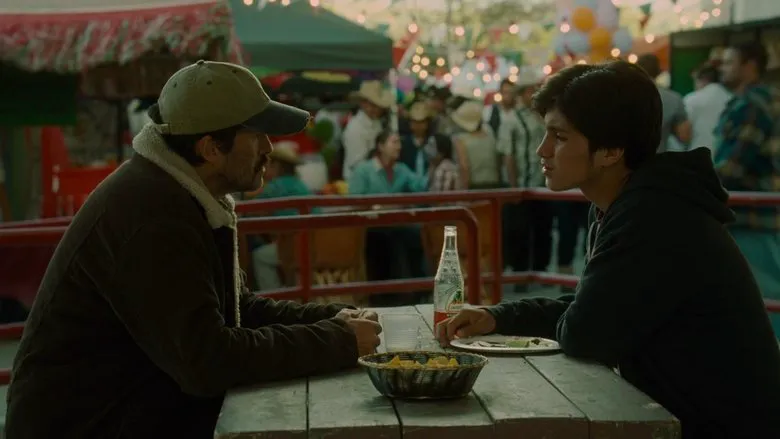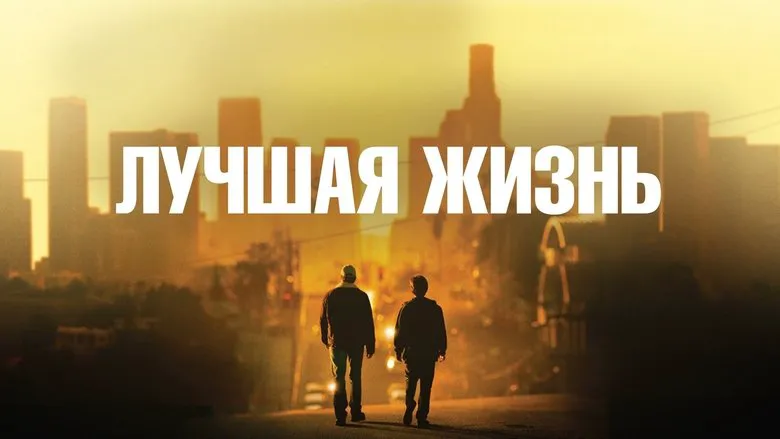“A Better Life”: A Poignant Tapestry of Hope and Struggle
“A Better Life” unfolds as a profoundly moving and deeply human narrative, illuminating the often-unseen realities of Mexican immigrants in America. Far from simplistic portrayals, the film gently dismantles stereotypes, revealing characters imbued with remarkable resilience, profound love, and unwavering dreams. It serves as a powerful reminder that beneath the surface of generalizations lie individuals striving for dignity and a brighter future.
The Arduous Pursuit of a Brighter Tomorrow
At the heart of this compelling story is Carlos, an undocumented Mexican immigrant, whose days are spent in the laborious, sun-baked gardens of Los Angeles. His every toil is fueled by a singular, consuming dream: to offer his fourteen-year-old son, Luis, a future filled with opportunities he himself never had. In a desperate, high-stakes gamble to elevate their meager circumstances, Carlos acquires a used pickup truck from his former boss. This vehicle, more than just transportation, symbolizes a tangible step towards independence and a beacon of hope for their struggling family. Tragically, this cherished new acquisition is stolen the very next day by another individual grappling with their own equally dire circumstances, mirroring the pervasive desperation that permeates their world.

Navigating the Harsh Realities of Undocumented Life
The film unflinchingly portrays an existence fraught with peril and devoid of clear pathways for undocumented immigrants. The choices presented are stark and often brutal. One can, like the diligent Carlos, commit to an exhausting life of manual labor, tirelessly tending to the meticulously manicured lawns and palm trees of others. This path, while honorable, frequently carries the specter of deportation, a constant threat hanging over every mundane task. Alternatively, one might succumb to the lure of the city’s notorious gangs, a fate that seemingly beckons Luis, whose youthful vulnerability makes him susceptible to their dark influence. This perilous road almost invariably leads to a life entangled in violence, incarceration, or other potentially fatal outcomes. “A Better Life” lays bare this dichotomy, emphasizing the relentless uphill battle and the emotional weight of limited options.
A Stolen Dream and the Indomitable Spirit
Amidst the prevailing gloom, a glimmer of fleeting hope emerges in characters like Blasco, Carlos’s former employer, who represents a rare success story. He managed to amass sufficient funds to establish a pig farm back in his native Mexico. Carlos, pragmatic and world-weary, initially questions Blasco’s venture, wondering who would buy his pigs if everyone is fleeing to the US. Nevertheless, the act of purchasing the truck from Blasco serves as a pivotal moment. Once stolen, this seemingly ordinary vehicle takes on an almost mythic significance for Carlos; its recovery becomes synonymous with the restoration of their hopes, the key to unlocking a better future. It symbolizes dignity and a pathway to a life beyond the margins. This desperate need propels him, joined by his conflicted son Luis, into a poignant and often heart-wrenching search across the sprawling urban landscape. Their shared quest becomes a quiet, powerful testament to familial love and perseverance.
The Heartbeat of Family and Redemption
The true emotional core of this remarkably endearing, touching, and refreshingly straightforward film lies in the raw, unvarnished depiction of the father-son relationship and their eventual, hard-won reconciliation. While it contains echoes of Vittorio De Sica’s timeless classic, “Bicycle Thieves” (1948), and may occasionally feel predictable in its narrative arc, these aspects scarcely diminish its profound impact. The film’s immense strength resides not in overwhelming its audience with a barrage of challenging social issues, but rather in its masterful restraint. It subtly, yet powerfully, illuminates the daily struggles and aspirations of its characters, expertly building towards moments of profound emotional catharsis that are genuinely tear-inducing. It’s a testament to the quiet power of human connection, even in the harshest of environments.
The Unforeseen Vision Behind the Camera
Perhaps one of the most intriguing elements of “A Better Life” is its director, Chris Weitz. Known predominantly for his work on blockbusters like the “Twilight” franchise and the ambitiously ill-fated “Golden Compass,” Weitz might seem an unlikely choice for such an intimate and socially resonant drama. Yet, in “A Better Life,” he delivers a film of unexpected depth and sensitivity, demonstrating a remarkable versatility that transcends his previous commercial successes. This project serves as a compelling reminder that cinematic brilliance and profound storytelling can emerge from the most unexpected individuals and corners of the industry, offering a poignant gem where one might least anticipate it.
